Sketch Your World: Materials
‘Sketch Your World’ is a collaboration between artist Phil Dean and AccessArt, aimed at helping students 16 and above be inspired by their local landscape.
In this post Phil Dean shows us the materials he puts in his pencil case when he draws in the urban environment and shares with you how you can make the most of them whilst you’re out and about.
Ballpoint Pen
Ballpoint is a surprisingly forgiving pen for sketching, with almost pencil-like qualities such as the ability to adjust line strength and stroke. On the whole, with ballpoints, the finer the nib, the better. It’s always worth keeping a ballpoint in your bag for fast sketches of people.
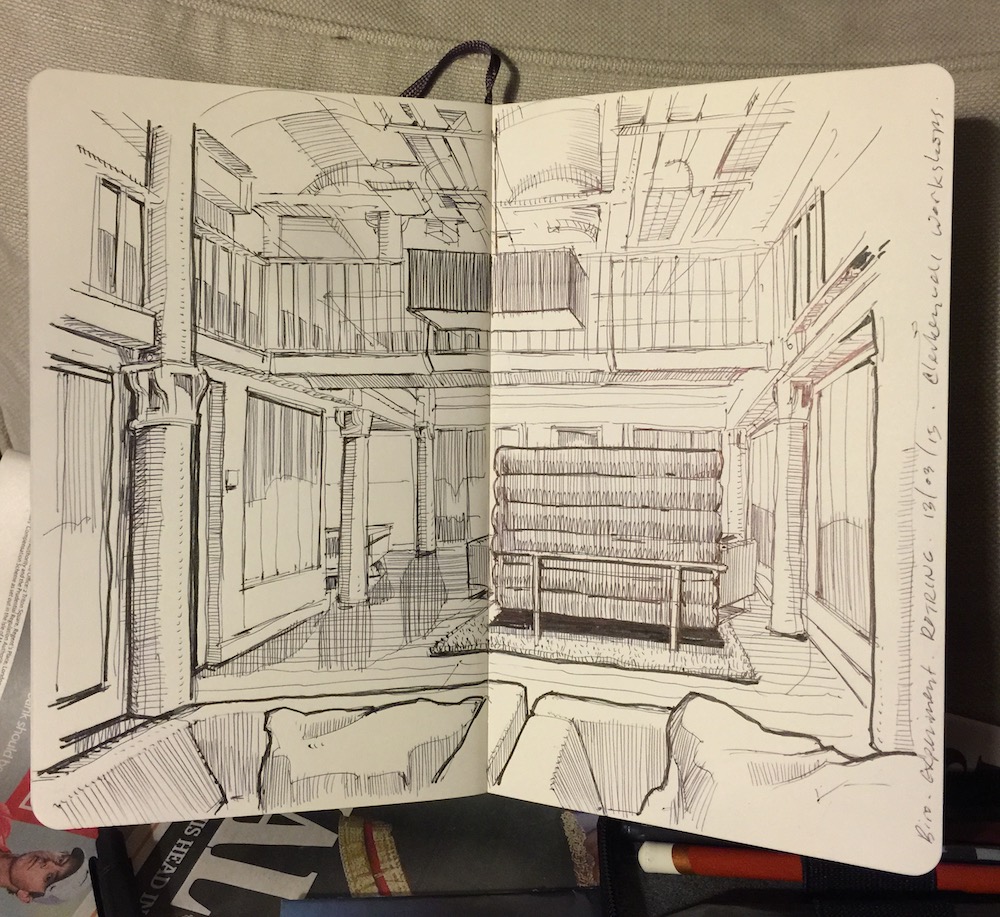 Pencil
Pencil
Pencil is a wonderful medium to capture the cityscapes with. Most of us are familiar with drawing with pencil so it’s a reliable media to work with. It is also extremely flexible and very forgiving for beginner sketchers. I always have some pencils in my bag in case the subject matter lends itself more to that medium. To save time when out and about, I use mechanical pencils that don’t need sharpening but you can use standard pencils, just make sure you have a sharpener to hand.
Softer pencils (HB–9B) deliver heavy shadows and more line weight, while harder pencils (H–9H) are great for adding detail.
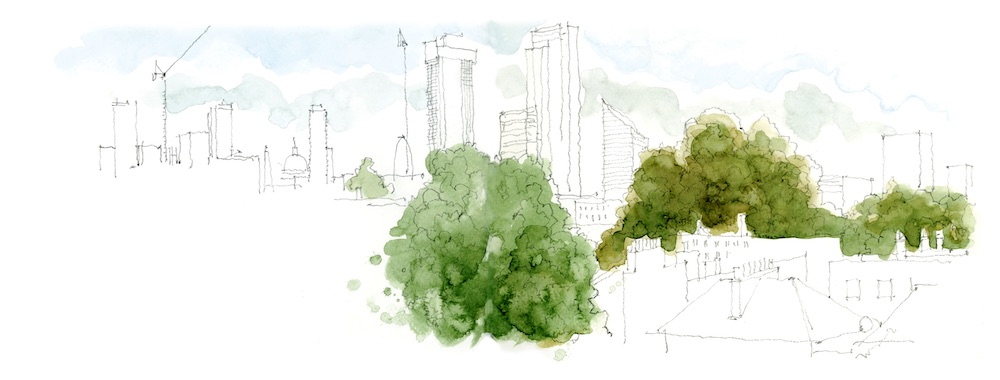
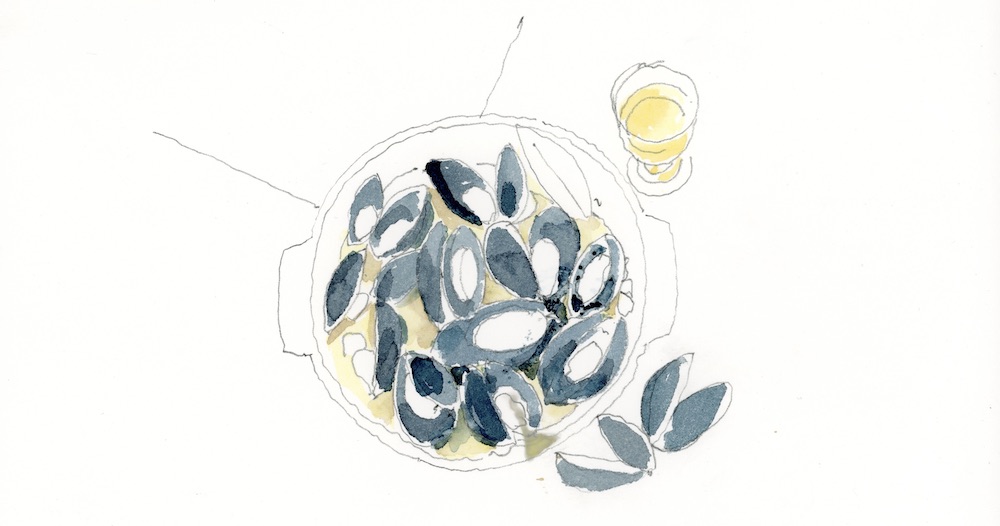
Coloured pencils are amazing to sketch with on their own and white pencils are great for adding highlights to sketches on dark paper.
Charcoal
Charcoal can be great to sketch with, giving fast, bold and immediate lines, and you can easily correct any mistakes with a kneadable eraser and some white chalk. The urban landscape is quite challenging for this medium and I would only really recommend using it when there is a lot of organic content in your scene; trees, rivers and people, for example. Geometric shapes are quite difficult to capture accurately in charcoal, but it can be really effective when drawing a more expressive or abstract sketch. If you do use charcoal, don’t forget your fixative spray.
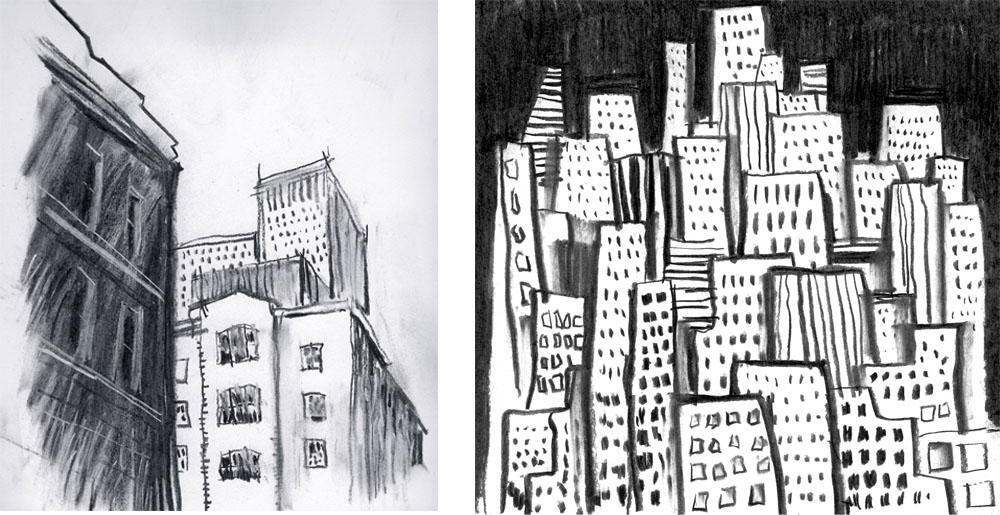 Fountain Pen
Fountain Pen
The old-fashioned fountain pen has seen a renaissance with sketchers in recent times and the lovely lines it delivers make it a favourite for many urban sketchers. The advantage of sketching with a fountain pen is the range of lines and thicknesses that you can achieve by adjusting how much pressure you put on the nib.
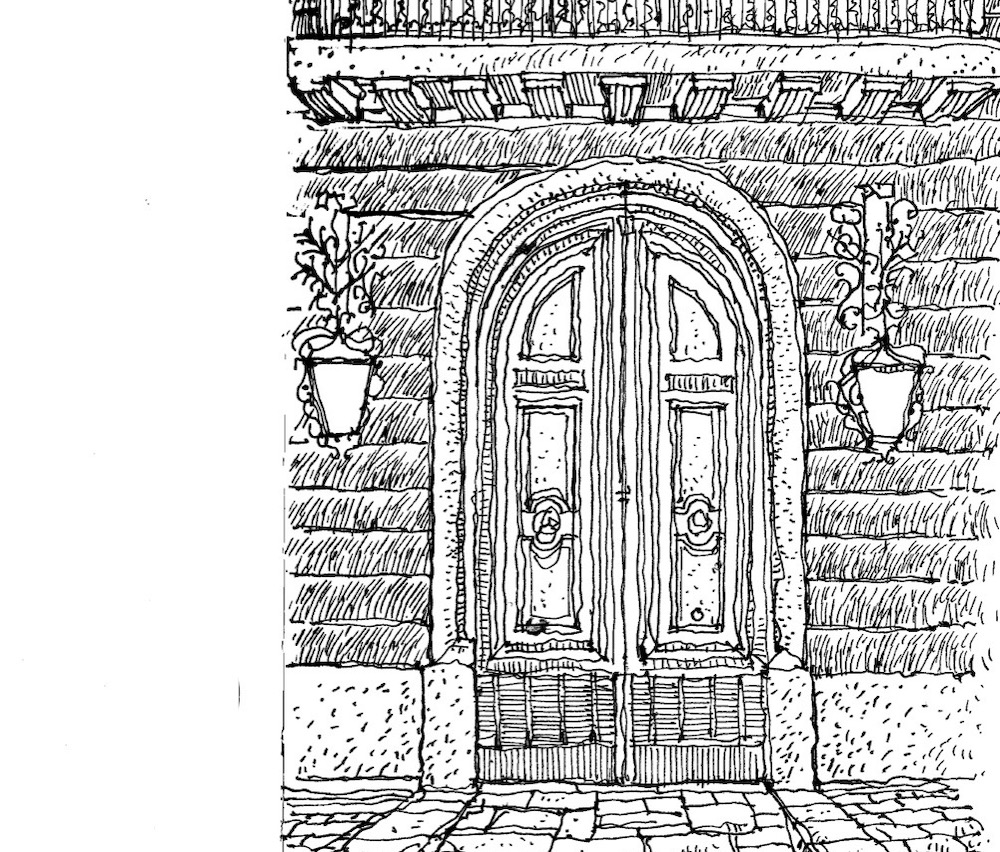 Waterproof ink can also be used with a fountain pen, so adding watercolour will not cause the ink to run.
Waterproof ink can also be used with a fountain pen, so adding watercolour will not cause the ink to run.
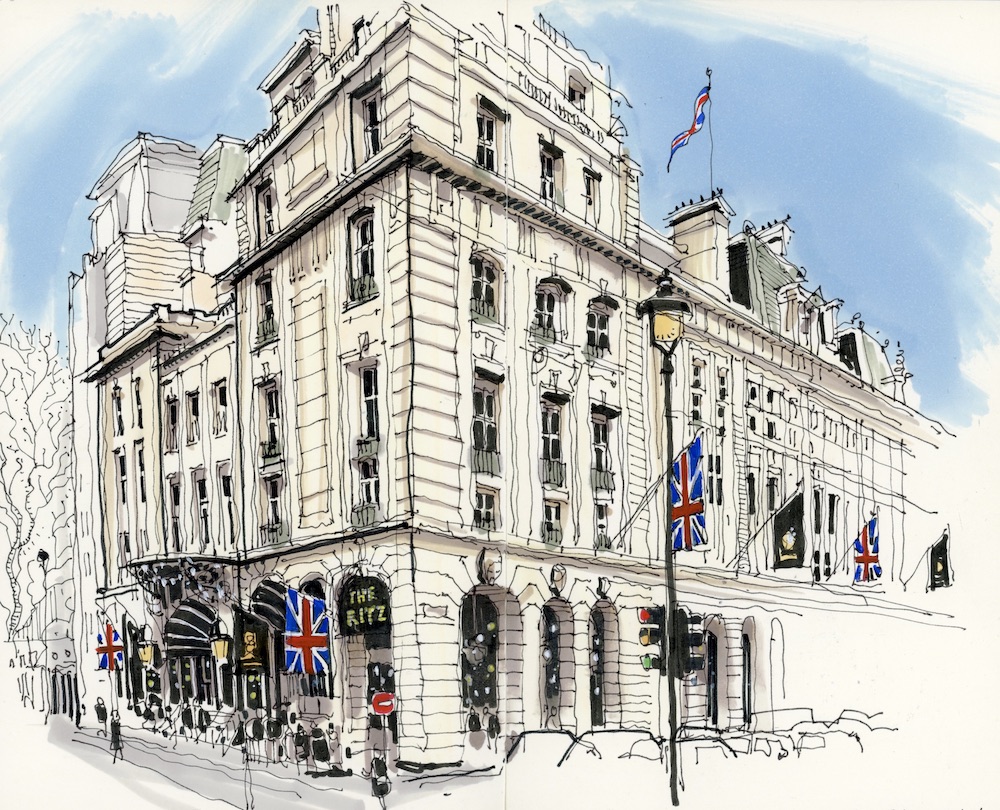 Brush Pen
Brush Pen
The brush pen can be a hard pen to master but it delivers bold and fluid results. It is particularly suited for scenes with people – capturing movement and vibrancy in economic strokes. These pens come in a wide range of colours and are definitely worth experimenting with.
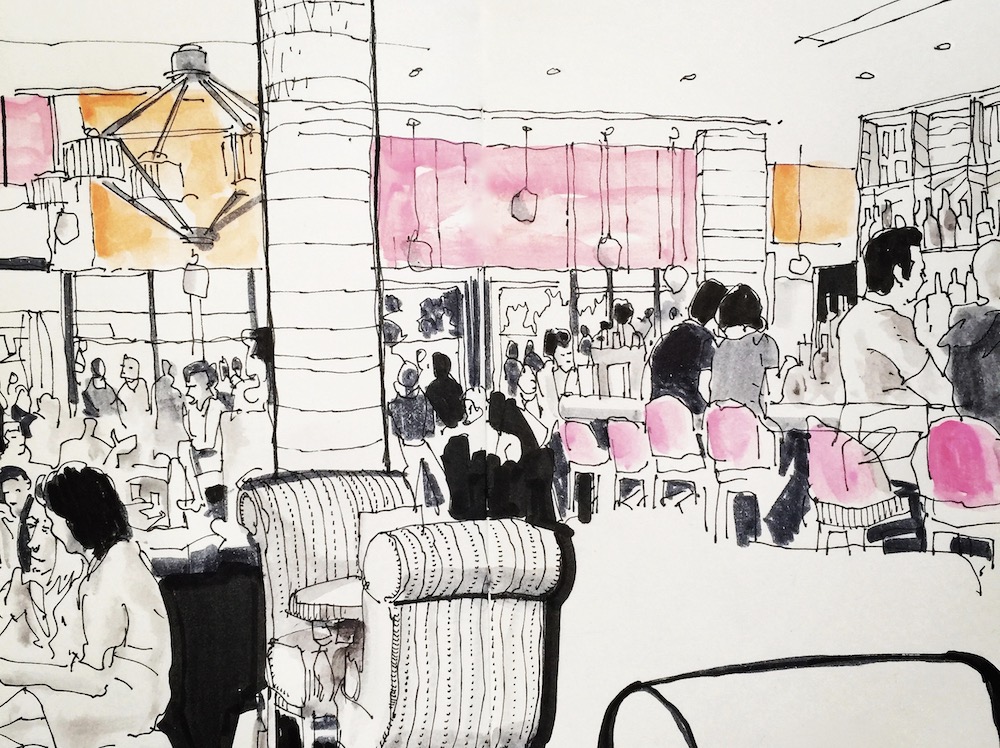
Marker pen is my favourite method of adding colour to my sketches. Marker pens are an easy way to add tone and colour to your sketches. They are also good for laying flat and graduated tones, while brush markers are good for softer ‘watercolour’ effects. It’s worth experimenting with a small set of greys or basic colours to add a splash of colour or tonal depth to your line sketches.
The downside to these pens is that they are not particularly cheap and they have the annoying habit of drying out (although refills can be bought for some brands).
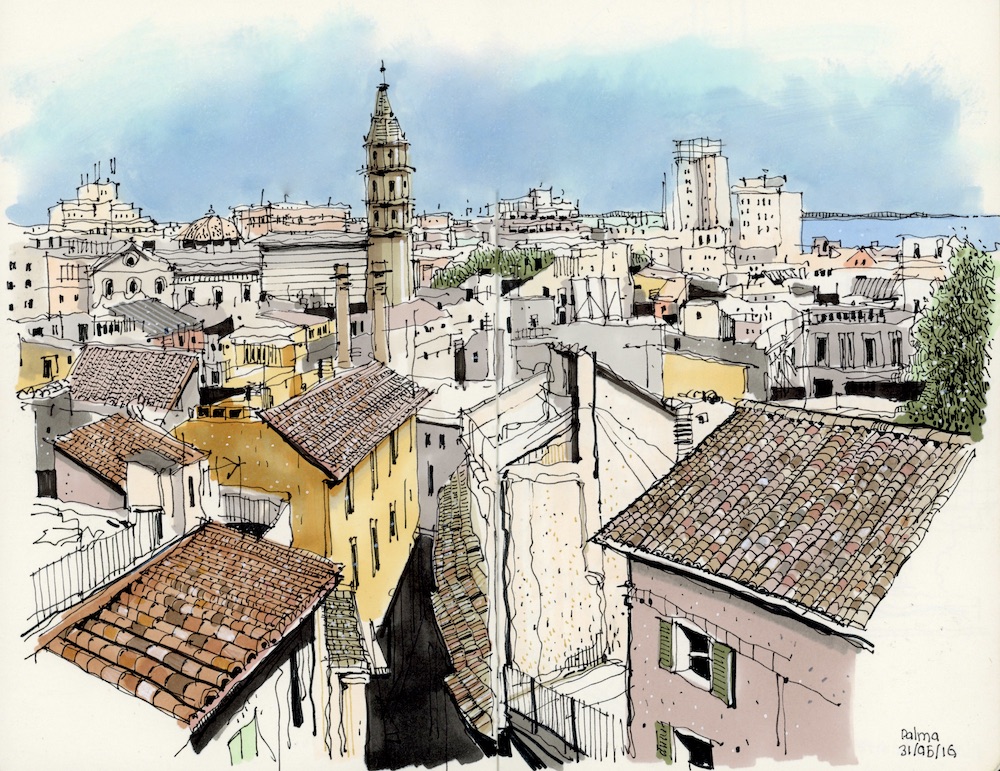
Watercolour can seem a little daunting at first but don’t be put off. It can be an extremely useful medium for adding some colour to your sketches once you get them home. While only the most enthusiastic (and experienced) urban sketchers tend to use watercolour on location, it can deliver great results in situ, since the artist can see the colours and represent them faithfully. Though it can take some time to master watercolour techniques, it’s definitely worth the effort. I recommend you buy a cheap beginners’ set (available in all art supplies shops) and have some fun experimenting – it’s hard to go to wrong as long as you remember that less is more. Make sure you use watercolour paper.
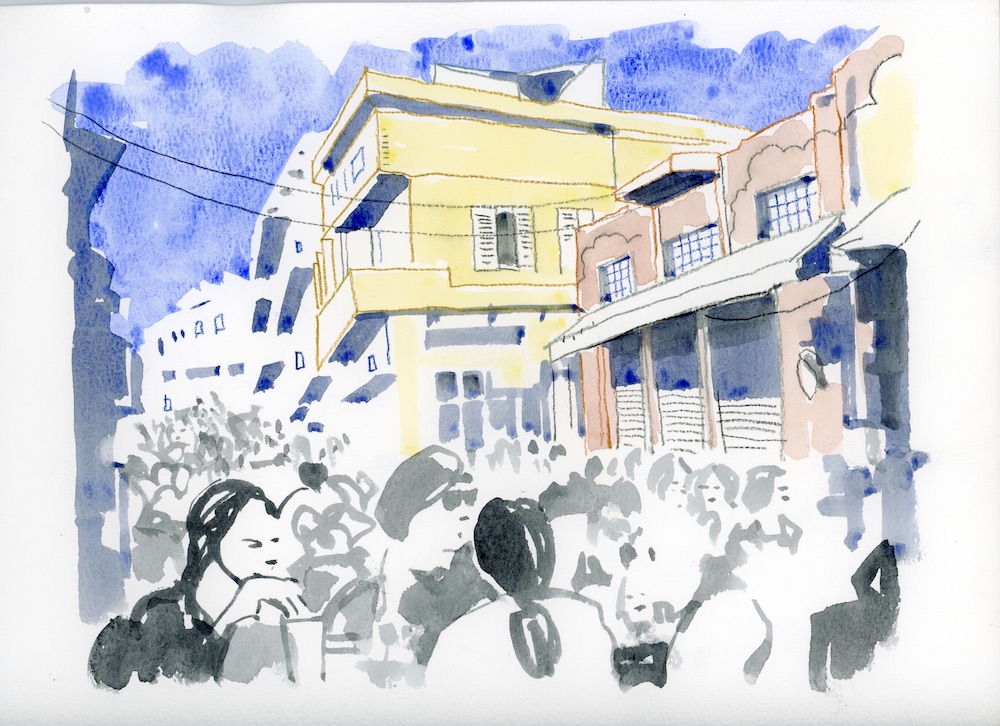
A pen is my preferred medium for urban sketching. It can take time to build up the confidence to draw in ink, but there is a freedom and immediacy to it that is quite exhilarating and addictive.
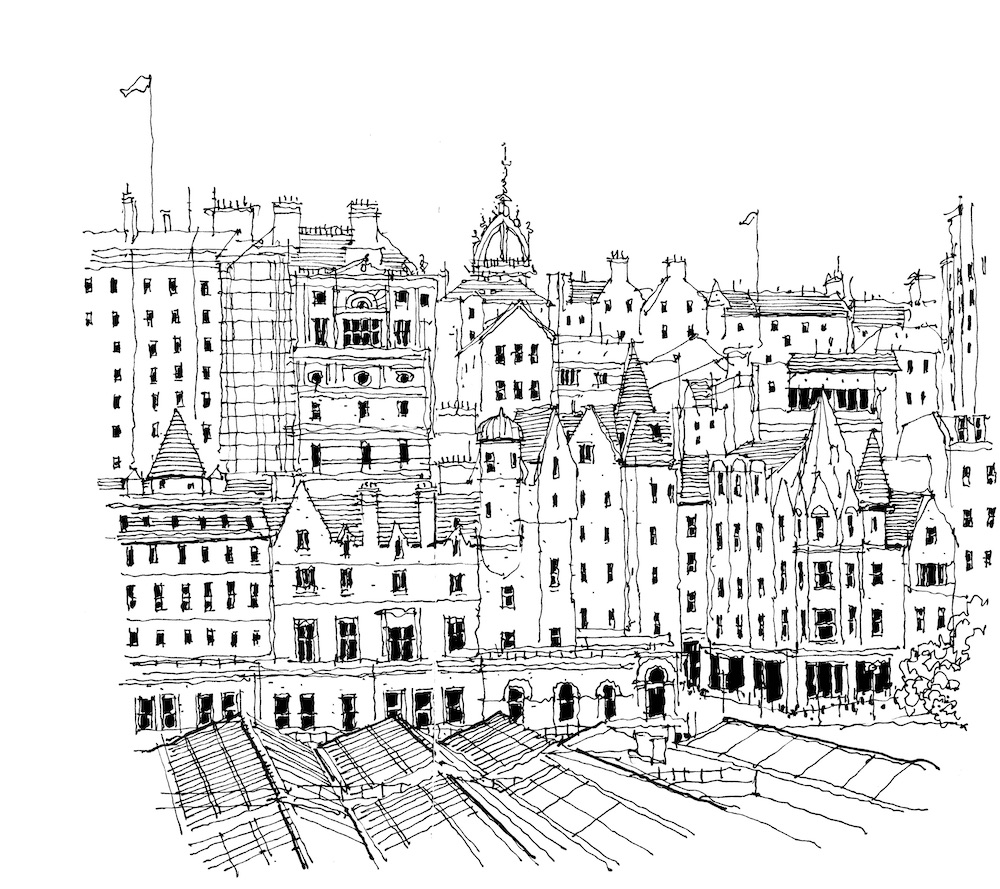
Challenge:
Collect some photographic references of your local area, either from photos that you’ve taken or using google maps street view. In sketchbooks get familiar with some of the materials mentioned above in your sketchbooks. Draw the whole image or pick out elements you find particularly interesting. Combine materials to see what happens.
Extension Challenge:
Select a medium that is most uncomfortable for you — so, if you prefer pencil, use pen or if you like to paint in colour, use black ink. Draw something you are attracted to, but using a different medium. If it’s a delicate subject, use a fat pen, use the medium to bring something interesting to the drawing.
‘Sketch Your World’ is a collaboration between artist Phil Dean and AccessArt, aimed at helping students 16 and above be inspired by their local landscape.
<< Go Back to Sketch Your World
